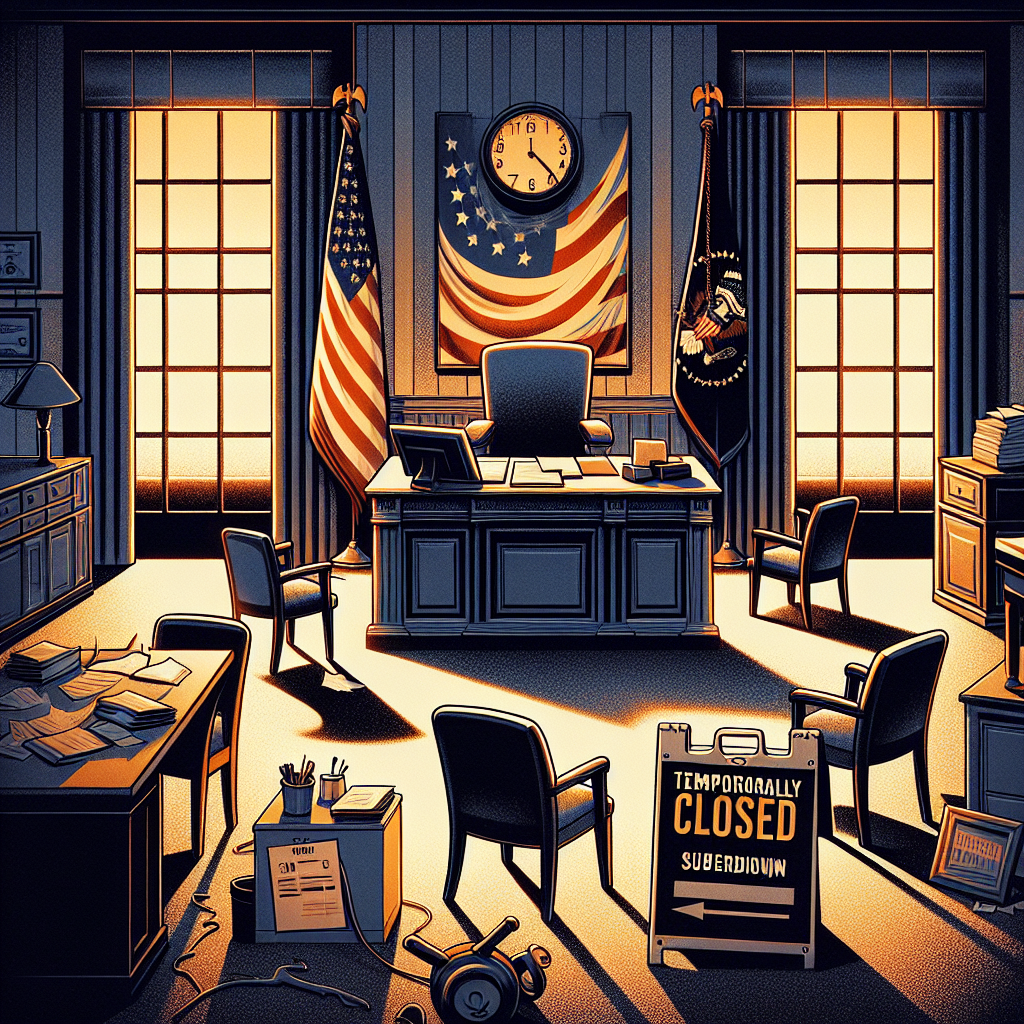U.S. Government Shutdown: A Political Standoff with Economic Consequences
The U.S. government shutdown began on Wednesday due to partisan disagreements, potentially leading to significant economic and operational disruptions, including delayed air travel and withheld pay for federal employees. The impasse arises as Republicans and Democrats clash over budget allocations, especially concerning healthcare and employment, with implications for future elections.

The U.S. government witnessed a major shutdown on Wednesday, rooted in deep partisan discord between Congress and the White House. The deadlock shows no signs of a resolution as negotiations stall, with critical federal operations at risk and significant economic repercussions anticipated.
Vice President JD Vance expressed concerns over air travel disruptions, linking them to the unpaid workforce of air traffic controllers and TSA employees during the shutdown. Historical precedents indicate that such situations could lead to severe travel delays, reminiscent of the 2018-2019 longest government shutdown.
The financial markets showed immediate reactions, with Wall Street experiencing declines amidst this economic uncertainty. As political and financial stakes rise, both parties jockey for advantage, especially as this issue involves a substantial allocation of the federal budget and core services like healthcare.
(With inputs from agencies.)
ALSO READ
Pfizer Agrees to Cut Drug Prices in Medicaid Deal with Trump Administration
Court Rules Against Trump Administration's Visa Policy on Pro-Palestinian Advocacy
Federal Judge Blocks Trump Administration's Counterterrorism Fund Cuts
Pfizer Strikes Historic Drug Pricing Deal with Trump Administration
Uncertain Future for AGOA Under Trump Administration: One-Year Extension Proposed










